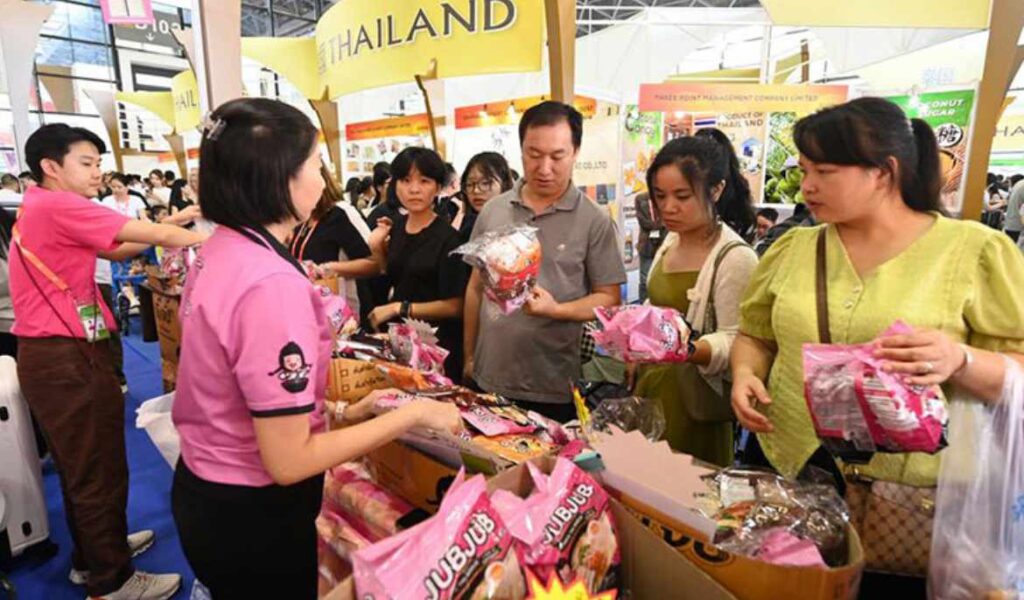BEIJING – China has launched an “ASEAN (the Association of Southeast Asian Nations) Visa” for the 10 ASEAN countries and ASEAN observer Timor-Leste, Chinese foreign ministry spokesperson Lin Jian told a regular press briefing on Tuesday.
According to Lin, China will issue the corresponding category of “ASEAN Visa” for business personnel from the 11 countries, as well as their spouses and children, who meet the requirements. The visa will allow multiple entries within five years and a maximum stay period of 180 days.
Lin said the “ASEAN visa” is launched on the basis of the comprehensive mutual visa exemption and the issuance of the “Lancang-Mekong visa” to Mekong River countries, aiming to further facilitate the cross-border movement of people within the region.
In recent years, the building of the China-ASEAN community with a shared future has been continuously advanced, and important achievements have been made in jointly building a common home that features peace, tranquility, prosperity, a beautiful environment, and friendship, Lin noted.
Noting that China and Southeast Asian countries have frequent personnel exchanges, Lin said further facilitating personnel exchanges is a common aspiration for both sides.
Last year marked as ‘The China-ASEAN People-to-People Exchange Year 2024’ has played a pivotal role in enhancing friendship, cooperation, and mutual understanding and trust between the peoples of China and ASEAN, injecting a strong impetus into building a closer China-ASEAN community with a shared future.
People-to-people contacts between China and ASEAN countries date back more than 1,000 years ago to the Tang Dynasty (618-907) when Chinese merchants traveled to Southeast Asia for trade, according to Kin Phea, the Director General of the International Relations Institute of Cambodia at the Royal Academy of Cambodia.
“Since China and ASEAN officially established dialogue relations in July 1991, people-to-people exchanges have served as the backbone of their ties. These interactions have advanced their comprehensive strategic partnership by enhancing mutual understanding and trust, promoting socio-economic development, and maintaining regional peace, security, and stability.
“The exchange year has further enhanced mutual understanding and friendship through closer people-to-people connections in various fields.”
From infrastructure projects to trade partnerships, China-proposed initiatives have played a crucial role in ASEAN’s socio-economic development, improving people’s livelihoods and fostering economic growth across the region.
China and ASEAN have organized various activities in cultural, tourism, education, media, and youth-focused fields.
These activities have played a crucial role in strengthening China-ASEAN relations by tapping into the most dynamic and innovative domains of people-to-people exchanges.
Youth exchanges, in particular, are crucial to deepening China-ASEAN relations as young people are the trailblazers for the future in the face of global challenges and uncertainties.
In the meanwhile, China and the ASEAN countries have completed negotiations on the Version 3.0 China-ASEAN Free Trade Area (CAFTA), sending a strong signal in support of free trade and open cooperation, a Chinese foreign ministry spokesperson said on Friday.
“This is indeed good news,” spokesperson Mao Ning said at a regular news briefing in response to a related question, adding that it also marks a key step towards signing the CAFTA 3.0 upgrade protocol.
She noted that both China and ASEAN are firm supporters of economic globalization and multilateralism, adding that CAFTA 3.0 will help China and ASEAN “further expand mutual opening up and jointly achieve prosperity and development.”



